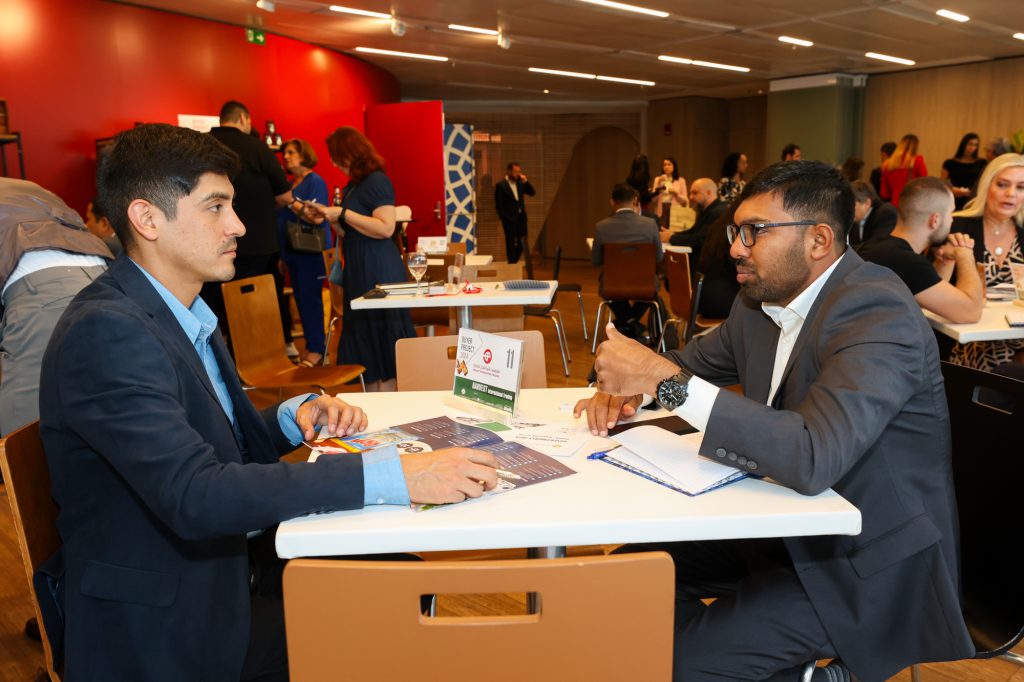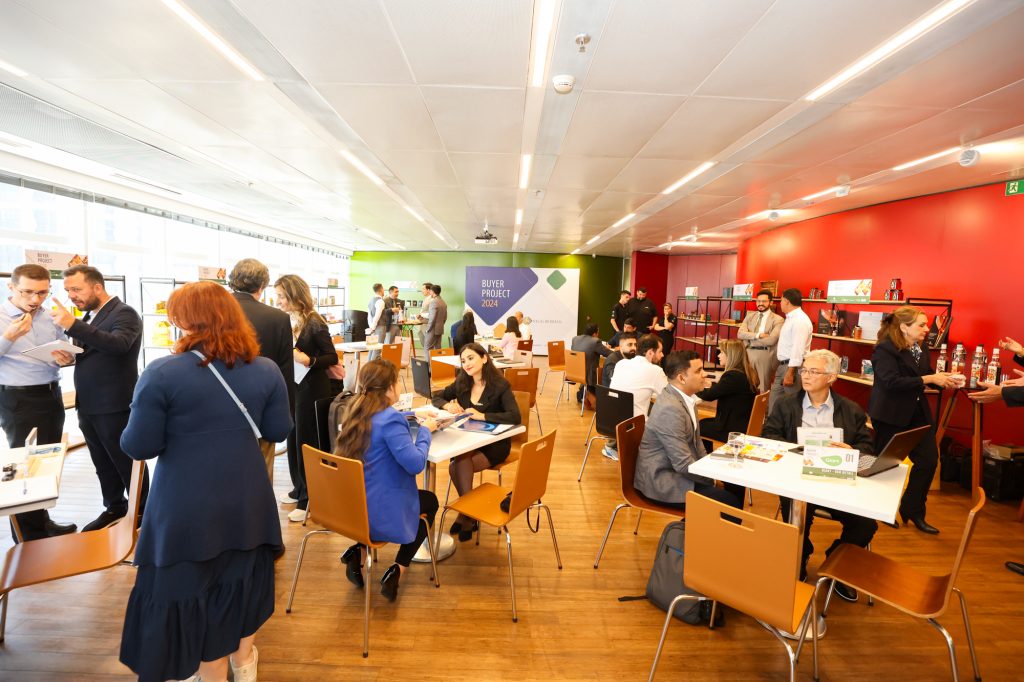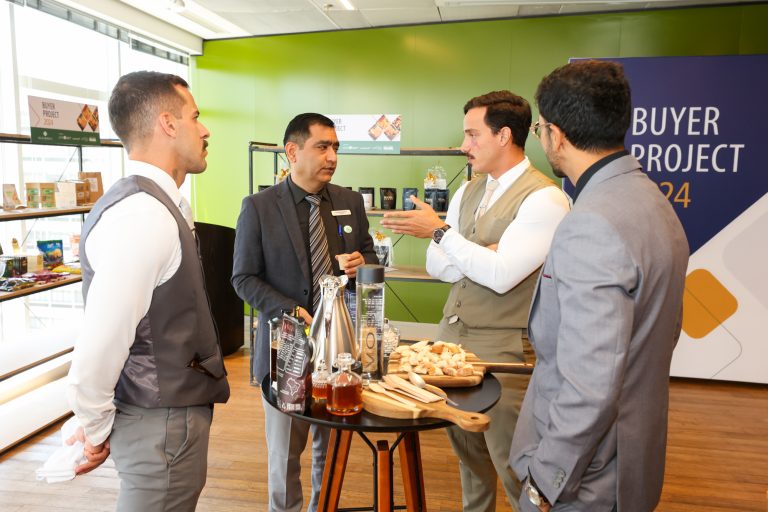São Paulo – Representatives of companies from Muslim-majority countries that are participating in this week’s Buyer Project by the Halal do Brasil project say the prices of Brazilian halal goods are competitive in their markets. Nine food and beverage importers from Muslim-majority nations are participating in this week’s Buyer Project.
The Halal do Brasil project is spearheaded by the Arab-Brazilian Chamber of Commerce (ABCC) and the Brazilian Trade and Investment Promotion Agency (ApexBrasil). This week’s program includes three days of B2Bs between companies invited by the project, seminars and visits to the Brazilian states of Minas Gerais, Paraná, and Goiás. Seminars and B2Bs are being held until Wednesday (7) in the headquarters of the ABCC, from Thursday through Friday, the foreign buyers will be divided into three groups to visit three Brazilian states ahead of a final meeting in Foz do Iguaçu, Paraná state, on Saturday (10).

Pankaj Sajnani, manager of consumer goods purchases at retailer chain Choithrams, told ANBA his company seeks industrialized goods, particularly snacks, pasta, and frozen goods.
“Brazil has competitive quality and prices, but our concern is the really large distance to Dubai,” said Sajnani. He said the company plans on importing small amounts and expanding orders as business thrive. Air import is ruled out, says Sajnani, for cost reasons. Furthermore, he pointed out that halal certification is essential, as documents are submitted to authorities in Dubai, and this is also a requirement from consumers. Choithrams has 54 stores in Dubai, plus shops and distribution centers in Qatar, and product distribution in Oman.
Retail in Muslim-majority countries want more foods from Brazil
Harvest International Trading food service manager Mohammed Amzal said the company already imports whole chickens, processed chicken meat, and chicken breasts from Brazil. Now at the Buyer Project, it seeks other products like honey and coffee. “If we obtain some coffee samples, we could taste them, and if they are good, we could buy. The origin doesn’t matter as much as good price and quality,” he said.
The headquarters of the company is in Doha, Qatar, where Harverst operates in retail with both proprietary and outsourced brands in various package sizes and formats. The company, says Amzal, imports an average of 20 containers of chicken breasts and 30 of processed chicken meat a year.

ABCC president Osmar Chohfi said the Buyer Project is an opportunity to bring Arab companies closer for business. “The Halal project with ApexBrasil is strategic for the ABCC as it seeks to train exporters to the Arab and Muslim-majority world in meeting the halal specificities,” he said.
Chohfi pointed out that his is an opportunity for small- and medium-sized exporting enterprises to reach Muslim-majority markets. He added the Buyer Project is an opportunity for importers to see Brazil as a major supplier of halal goods, and for Brazilian companies to see in Muslim-majority countries a potential market.
Read more:
Halal market the topic of online course
Halal project spotlights female leadership
Translated by Guilherme Miranda




